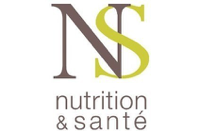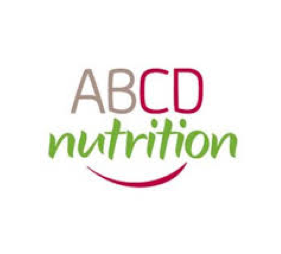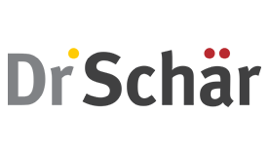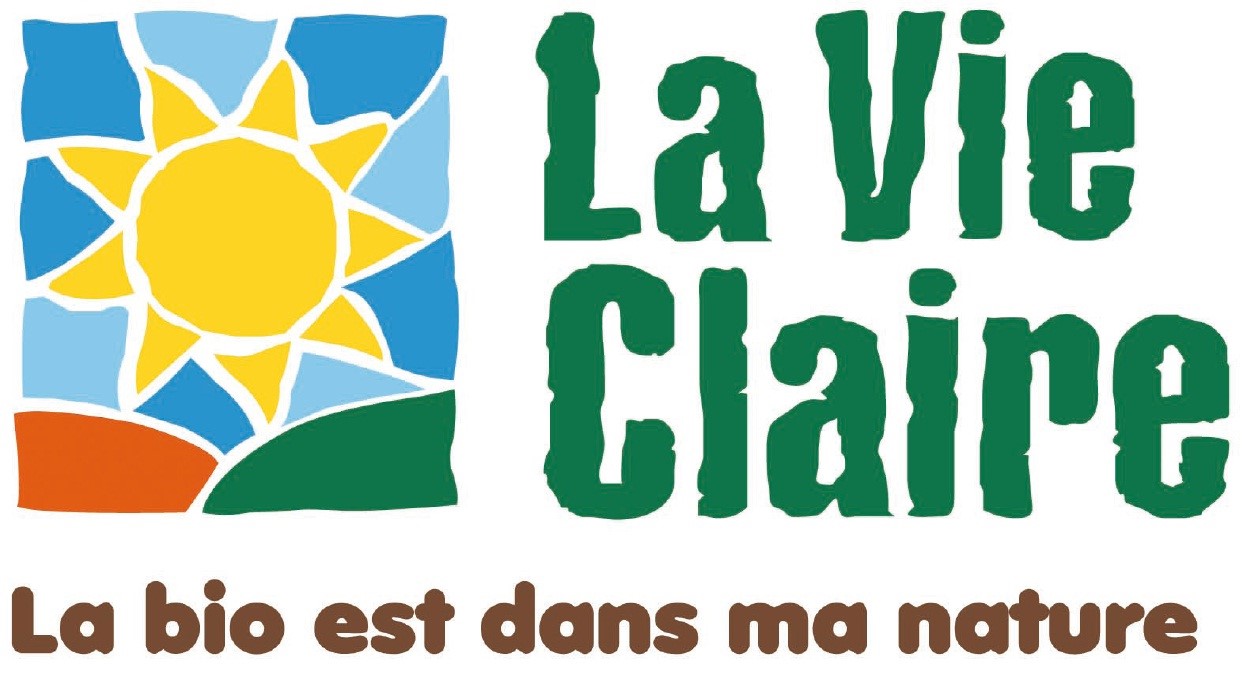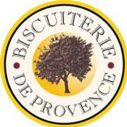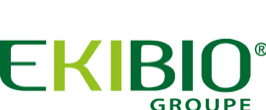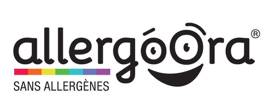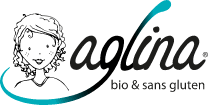Synthèse
The global gluten-free food market is expected to show robust growth, with an annual growth rate of around 8.1%. This upward trend is reflected in the French market, where gluten-free products accounted for the equivalent of 96 million euros. This distribution channel accounts for around 49% of total sales of gluten-free products, representing a national market of almost 195 million euros. The growth of the French market is due to a combination of an expanding product range, growing consumer awareness of health issues, and the control exercised by bodies such as the Association française des intolérants au gluten (AFDIAG).
Gluten-free products, including beer, pasta, bread and ready meals, are increasingly associated with a healthier diet, fuelling consumer demand. Major industry players are adapting their strategies and positions to respond to this market, which has strong potential for sustained growth given the prevalence of celiac disease and gluten sensitivity among consumers.
Growth dynamics and consumer trends
Demand for gluten-free products in France has grown substantially, in parallel with a worldwide increase characterized by an annual growth rate of between 7 and 9%, rethis is thought to be due to both an increase in the number of diagnoses of gluten intolerance and a growing interest in healthier diets. As gluten - a composite protein found in wheat, barley, rye and oats - can be harmful to people suffering from certain allergies or intolerances, the market landscape has been transformed to meet this growing need.
Globally, the size of the gluten-free food market has been estimated at between 5 and 6 billion USD in 2020, with projections estimating its value at over 8 billion USD by the mid-2020s. This corresponds to a considerable increase in the volume of gluten-free food production, which will rise from 400,000 tonnes to over 900,000 tonnes in the space of a decade, further underlining the market's accelerating growth. In France in particular, gluten-free products have carved out an important place for themselves, accounting for around 22% of the health food market in supermarkets and hypermarkets, which translates into a valuation of almost 100 million euros for this distribution channel alone. Taking into account other distribution channels, the overall French market for gluten-free products is estimated at around 200 million euros, with an impressive national growth rate estimated at 20% by 2020.
In terms of consumer behavior, 4-8% of the French population has completely eliminated gluten due to allergies or intolerances, with the majority of gluten-free consumers citing health reasons for their dietary choices. Furthermore, 94% of gluten-free eaters attribute their choice to health reasons or family influences, challenging the perception that these diets are fanciful trends. This group includes both individual consumers and restaurateurs, who are gradually including gluten-free options on their menus to accommodate dietary restrictions. In addition, online searches for "gluten-free" terms in France have stabilized, indicating sustained interest rather than a passing fad.
The sector's growth is set to continue as a result of the growing awareness and diagnosis of celiac disease, the increasing acceptance of gluten sensitivity as a distinct condition, and the emergence of gluten-free products. as a distinct condition, recommendations against gluten consumption for certain autoimmune diseases, mandatory allergen labeling regulations and public endorsement by celebrities adopting gluten-free diets. However, despite the conscious move towards a better diet, spending on gluten-free foods remains relatively low.
As the French gluten-free market continues to grow, several crucial companies are playing a key role in shaping the landscape of gluten-free offerings. These organizations range from established manufacturers to innovative distributors, all contributing to a more varied and accessible range of gluten-free products.
- Nutrition & Santé: Based in France, Nutrition & Sante is a leading manufacturer that dominates the gluten-free product range thanks to its expertise in health-focused food solutions. The company's commitment to nutritional value and dietary needs has made it a household name in France for those seeking gluten-free alternatives.
- Dr. Schär: An Italian company with a worldwide presence, Dr. Schär has carved out a place for itself in the gluten-free sector. Schär is a trusted brand for consumers looking for quality gluten-free foods.
- La Vie Claire: A pioneer of organic and dietetic food in France, La Vie Claire has maintained its commitment to a healthy lifestyle by offering a complete range of gluten-free products that meet the needs of people with celiac disease or gluten sensitivity.
- ABCD Nutrition: A French brand specializing in the creation of gluten-free products, ABCD Nutrition is recognized for its innovation and the quality of its products, which meet the growing demand for alternative dietary products.
- Biscuiterie de Provence: A testament to localized production and a specialized offering, Biscuiterie de Provence markets a unique range of gluten-free cookies and bakery products, combining traditional Provençal flavors with the need for gluten-free options.
- Nature & Cie: With its roots in France, Nature & Cie offers a variety of gluten-free products, emphasizing the importance of natural ingredients and meeting consumers' taste and health requirements.
- Ekibio: As one of the leading distributors of gluten-free products in France, Ekibio plays a crucial role in ensuring the availability of these products on the market. Its efforts have contributed significantly to the growth and spread of gluten-free food options.
- Bio c'bon: Another major player in the distribution field, Bio c'bon offers a wide selection of organic and gluten-free products. Its contribution to the accessibility of health-focused products is key to the continued popularity and consumer shift towards gluten-free diets.
- Allergoora: Although smaller than the other players, Allergoora has made a name for itself by targeting the gluten-free food market
à la compréhension de ce marché
Détail du contenu
 Informations
Informations
- Nombre de pages : 30 pages
- Format : Version digitale et PDF
- Dernière mise à jour : 20/11/2021
 Sommaire et extraits
Sommaire et extraits
1 Market overview
1.1 Market definition
Gluten is a substance resulting from the processing of certain cereals (wheat, rye, barley, oats). Present in nearly 70% of food products, it can be harmful to people diagnosed as intolerant or allergic
In France, the offer is controlled by the French Association of Gluten Intolerants (AFDIAG), created in 1989 to ensure the labelling of gluten-free products.
Some of the most commonly sold gluten-free products include
- Beer;
- Appetizer cookies;
- Pasta;
- Bread;
- The sweet grocery store;
- Savoury grocery ;
- Ready-made meals.
The global market for gluten-free foods is on the rise (11.6% growth in value between 2016-2021) as well as the French market where the dynamics are even more important, the domestic growth rate is estimated at 20% between 2016 and 2020.
Pulled by a diversification of the offer of gluten-free products, the market also benefits from consumer sympathy, as gluten-free products are often associated with a healthier diet
The "gluten-free" craze has convinced the most major food groups to position itself in this segment, alongside the smaller players Pioneers in the segment or specialised in "organic" food.
1.2 A fast-growing global market
The histogram below represents the global gluten-free food market size from **** to ****
Market for gluten-free products World, ****-****, billion dollars Source: ****
In ****, the global gluten-free food market was worth approximately USD *.* billion. It is estimated that this market will grow at about *.*% per year over the period ****-**** to reach USD ...
1.3 The French market
According to LSA, in ****, gluten-free products would represent **% of the market for dietary products sold in supermarkets and hypermarkets, i.e. ** million euros out of *** million euros in this distribution channel.
To estimate the overall market for gluten-free products in France, we need to know the proportion of these products that ...
2 Analysis of the demand
2.1 Consumer profile
The number of consumers who have completely stopped eating gluten would be between * and *% of the total population, these consumers corresponding to two distinct groups.
People with celiac disease who suffer from permanent intolerance ; People who are allergic to wheat or gluten;
In addition, a significant number of people are declared ...
2.2 High growth potential
Diets practiced by the French France, ****, in % Source: ****
If we count about * to *% of French people, i.e. those who would have banned gluten from their diet because of allergy or intolerance, ** million French people would be occasional consumers of gluten-free products.
Reason for consuming gluten-free products France, ****, in % Source: ****
Another ...
2.3 Spending is still low despite the desire to eat better
Monthly expenditure of the French on gluten-free food France, ****, in Source: ****
As most French people consume gluten, it seems logical to observe that almost **% of them have no monthly expenditure on gluten-free products. However, it appears that the monthly expenditure of people consuming gluten-free products varies between * and more than *** euros. ...
2.4 Trends in the gluten-free market in France
The market for gluten-free products is a very innovative one, as Julie Avrillier, Secretary General of the Dietetic Sector, explains: "Consumption is refocusing on consumers who "need" it, i.e. coeliac patients and people with gluten intolerance. (***)".
According to a government study, there is also a strong adaptation of the market ...
3 Market structure
3.1 Forces and organization of the sector
Main players in the French market by volume France, ****, in % Source: ****
Main players in the French market by value France, ****, in % Source: ****
We can see that the gluten-free product offer is held by a handful of players who have a large share of the French market. The major players in the ...
3.2 External competition and substitutes
The French population is becoming increasingly aware of the need to eat healthy, and while some people are turning to gluten-free to control their diet, it is not the only alternative. People who turn to gluten-free to eat healthy and not out of obligation can therefore find substitutes in other ...
3.3 Production that expands with consumer trends
Gluten-free manufacturers have been constantly expanding their range of new products in recent years. For example, they have moved into the beverage sector, with the gluten-free beer marketed.
While this sub-segment of the gluten-free market has existed since **** with the creation by Jade Brewery of the range Jade Gluten Free This ...
3.4 Distribution channels for gluten-free products
There are five main sales channels for gluten-free products:
The large and medium-sized stores Like Système U, Carrefour, Auchan, Leclerc and Intermarché, which distribute gluten-free beer from Brasserie Castelain [***]. They account for approximately **% of sales in this segment and have had an increasing availability of gluten-free products on their shelves ...
3.5 Interview with Cécile Gleize, founder and CEO of Because Gus
Marine: Welcome to the Niche, the podcast that analyzes the niche market with the entrepreneurs who are moving the lines. I'm Marine and I work at Business Group, the startup that dusts off market research. Before we start, subscribe to our podcast on Spotify and Apple Podcast. And now, let's get ...
4 Analysis of the offer
4.1 Types of products
While the gluten-free family of products covers a variety of applications ranging from cosmetics to beer, foodstuffs remain the most important products in the gluten-free sector. Thus, within the food industry, the most common products include the following categories:
Flour (***) Bread, pastries and cakes Dry pasta Pizza dough, puff pastry, shortcrust ...
4.2 Differentiated growth by product type
Three product categories stand out from the rest with strong growth:
Breakfast : the products usually consumed by the French for breakfast contain a lot of gluten (***), so this sub-market has strong development potential. Pasta In this segment, brands are finding ways to provide consumers with foodstuffs that are a priori "forbidden" ...
4.3 A significant price premium for gluten-free products
The prices of gluten-free products are generally higher than the prices of so-called "classic" products. In fact, a basic basket of gluten-free products shows that prices per kilogram are up to * times higher for some products, particularly biscuits.
Source: ****
4.4 The price of gluten-free products
Dr Schär, the European leader in gluten-free products with a strong presence in the French market, justifies the high prices of gluten-free products by proportionally higher production costs. On the one hand, according to the manufacturer, the European regulation in force (***) contributes to higher production costs as these raw materials ...
4.5 Supply trends
The restaurant industry has particularly invested in the gluten-free segment, as has the Pizza Hut which has launched a range of certified gluten-free pizzas, or Parisian restaurants such as NoGlu that offer certified gluten-free menus (***).
Bakeries are also starting to produce certified gluten-free products, such as Eric Kayser in Paris * and ...
5 Regulation
5.1 Regulation of the term "gluten-free
Among the existing regulations we can mention the Implementing Regulation (***) No ***/**** of the European commission of ** July **** on requirements for the provision of information to consumers on the absence or reduced presence of gluten in foodstuffs.
These regulations came into force on ** July **** repealing the **** regulations
To ensure that the signal ...
5.2 The need for controls to ensure product quality
The only way for celiac patients to maintain their health is to avoid gluten in their diet. Therefore, the truthfulness of "gluten-free" or "very low gluten" claims is fundamental for this population. Gluten-free" products must contain a maximum of ** ppm of gluten, "very low gluten" products must contain a maximum of ...
6 Positioning of the actors
6.1 Major market players
- Nutrition & Santé Groupe
- ABCD Nutrition
- Dr Schär
- La vie Claire
- Biscuiterie de Provence
- Ekibio (Groupe Lea Biodiversité)
- Bio c' Bon
- Allergoora
- Nature & Cie
- Barilla
- Aglina Paradeigma
- Soreda Diet - BioRévola
- Céliane
- Genius Gluten Free
- Jardin Bio (Léa Nature)
- Le Pain des Fleurs
- Ekibio - Ma Vie Sans Gluten
- Max de Génie
- No Gluten Pro - Allergonline
- Noglu
- Valpiform - Nutrition et Santé groupe
 Liste des graphiques
Liste des graphiques
- Volume du marché mondial des aliments sans gluten
- Valeur du marché mondial des aliments sans gluten, par catégorie
- Marché des produits sans gluten
- Marché des produits sans gluten
- Motif de la consommation d'aliments sans gluten
Toutes nos études sont disponible en ligne et en PDF
Nous vous proposons de consulter un exemple de notre travail d'étude sur un autre marché !
Dernières actualités
Entreprises citées dans cette étude
Cette étude contient un panorama complet des entreprises du marché avec les derniers chiffres et actualités de chaque entreprise :
 Choisir cette étude c'est :
Choisir cette étude c'est :
Accéder à plus de 35 heures de travail
Nos études sont le résultat de plus de 35 heures de recherches et d'analyses. Utiliser nos études vous permet de consacrer plus de temps et de valeur ajoutée à vos projets.
Profiter de 6 années d'expérience et de plus de 1500 études sectorielles déjà produites
Notre expertise nous permet de produire des études complètes dans tous les secteurs, y compris des marchés de niche ou naissants.
Notre savoir-faire et notre méthodologie nous permet de produire des études avec un rapport qualité-prix unique
Accéder à plusieurs milliers d'articles et données payantes
Businesscoot a accès à l'ensemble de la presse économique payante ainsi qu'à des bases de données exclusives pour réaliser ses études de marché (+ 30 000 articles et sources privées).
Afin d'enrichir nos études, nos analystes utilisent également des indicateurs web (semrush, trends…) pour identifier les tendances sur un marché et les stratégies des entreprises. (Consulter nos sources payantes)
Un accompagnement garanti après votre achat
Une équipe dédiée au service après-vente, pour vous garantir un niveau de satisfaction élevé. (+33) 9 70 46 55 00
Un format digital pensé pour nos utilisateurs
Vous accédez à un PDF mais aussi à une version digitale pensée pour nos clients. Cette version vous permet d’accéder aux sources, aux données au format Excel et aux graphiques. Le contenu de l'étude peut ainsi être facilement récupéré et adapté pour vos supports.
 Nos offres :
Nos offres :
the gluten-free food market | France
- Quels sont les chiffres sur la taille et la croissance du marché ?
- Quels leviers tirent la croissance du marché et leur évolution ?
- Quel est le positionnement des entreprises sur la chaine de valeur ?
- Comment se différencient les entreprises du marché ?
- Données issues de plusieurs dizaines de bases de données
Pack 5 études (-15%) France
- 5 études au prix de 75,6€HT par étude à choisir parmi nos 800 titres sur le catalogue France pendant 12 mois
- Conservez -15% sur les études supplémentaires achetées
- Choisissez le remboursement des crédits non consommés au terme des 12 mois (durée du pack)
Consultez les conditions du pack et de remboursement des crédits non consommés.
- 03/04/2024 - Mise à jour des données financières de l'entreprise La vie Claire
- 03/04/2024 - Mise à jour des données financières de l'entreprise Jardin Bio (Léa Nature)
- 04/02/2024 - Mise à jour des données financières de l'entreprise Allergoora
- 04/02/2024 - Mise à jour des données financières de l'entreprise Bio c' Bon
- 04/02/2024 - Mise à jour des données financières de l'entreprise Ekibio (Groupe Lea Biodiversité)
- 04/02/2024 - Mise à jour des données financières de l'entreprise Dr Schär
- 04/02/2024 - Mise à jour des données financières de l'entreprise Biscuiterie de Provence
- 04/02/2024 - Mise à jour des données financières de l'entreprise Nutrition & Santé Groupe
- 04/02/2024 - Mise à jour des données financières de l'entreprise ABCD Nutrition
- 02/01/2024 - Mise à jour des données financières de l'entreprise La vie Claire
- 02/01/2024 - Mise à jour des données financières de l'entreprise Jardin Bio (Léa Nature)
- 04/10/2023 - Mise à jour des données financières de l'entreprise Allergoora
- 04/10/2023 - Mise à jour des données financières de l'entreprise Bio c' Bon
- 04/10/2023 - Mise à jour des données financières de l'entreprise Ekibio (Groupe Lea Biodiversité)
- 04/10/2023 - Mise à jour des données financières de l'entreprise Biscuiterie de Provence
- 02/10/2023 - Mise à jour des données financières de l'entreprise Dr Schär
- 02/10/2023 - Mise à jour des données financières de l'entreprise Nutrition & Santé Groupe
- 02/10/2023 - Mise à jour des données financières de l'entreprise ABCD Nutrition
- 01/10/2023 - Mise à jour des données financières de l'entreprise La vie Claire
- 01/10/2023 - Mise à jour des données financières de l'entreprise Jardin Bio (Léa Nature)
- 06/07/2023 - Ajout des informations de l'entreprise Valpiform
- 06/07/2023 - Ajout des informations de l'entreprise Noglu
- 06/07/2023 - Ajout des informations de l'entreprise No Gluten Pro
- 06/07/2023 - Ajout des informations de l'entreprise Max de Génie
- 06/07/2023 - Ajout des informations de l'entreprise Ma Vie Sans Gluten
- 06/07/2023 - Ajout des informations de l'entreprise Boulangerie Le Petit Minotier
- 06/07/2023 - Ajout des informations de l'entreprise Le Pain des Fleurs
- 06/07/2023 - Ajout des informations de l'entreprise Jardin Bio (Léa Nature)
- 06/07/2023 - Ajout des informations de l'entreprise Genius Gluten Free
- 06/07/2023 - Ajout des informations de l'entreprise Céliane
- 06/07/2023 - Ajout des informations de l'entreprise BioRévola
- 06/07/2023 - Ajout des informations de l'entreprise Aglina
- 14/06/2023 - Mise à jour des données financières de l'entreprise Ekibio (Groupe Lea Biodiversité)
- 14/06/2023 - Mise à jour des données financières de l'entreprise Bio c' Bon
- 14/06/2023 - Mise à jour des données financières de l'entreprise Allergoora
- 21/05/2023 - Mise à jour des données financières de l'entreprise Biscuiterie de Provence
- 21/05/2023 - Mise à jour des données financières de l'entreprise La vie Claire
- 02/05/2023 - Mise à jour des données financières de l'entreprise Dr Schär
- 02/05/2023 - Mise à jour des données financières de l'entreprise Nutrition & Santé Groupe
- 02/05/2023 - Mise à jour des données financières de l'entreprise ABCD Nutrition
- 09/03/2023 - Mise à jour des données financières de l'entreprise Allergoora
- 20/02/2023 - Mise à jour des données financières de l'entreprise Bio c' Bon
- 20/02/2023 - Mise à jour des données financières de l'entreprise Ekibio (Groupe Lea Biodiversité)
- 20/02/2023 - Mise à jour des données financières de l'entreprise La vie Claire





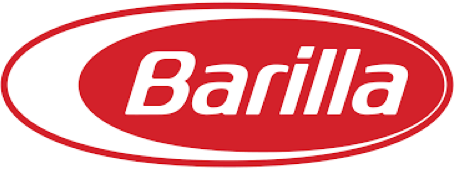 Barilla perde il secondo round della guerra dei biscotti - 02/04/2024
Barilla perde il secondo round della guerra dei biscotti - 02/04/2024
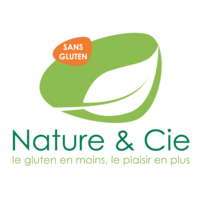 Nature et Compagnie, PME de Vallet en Loire-Atlantique, développe son épicerie fine - 29/04/2023
Nature et Compagnie, PME de Vallet en Loire-Atlantique, développe son épicerie fine - 29/04/2023
